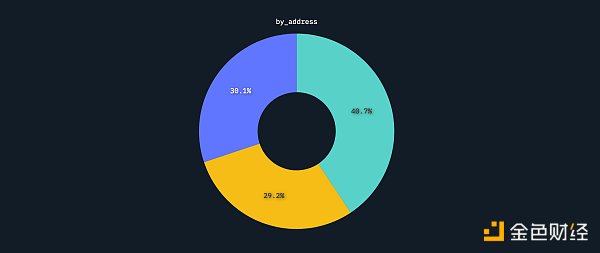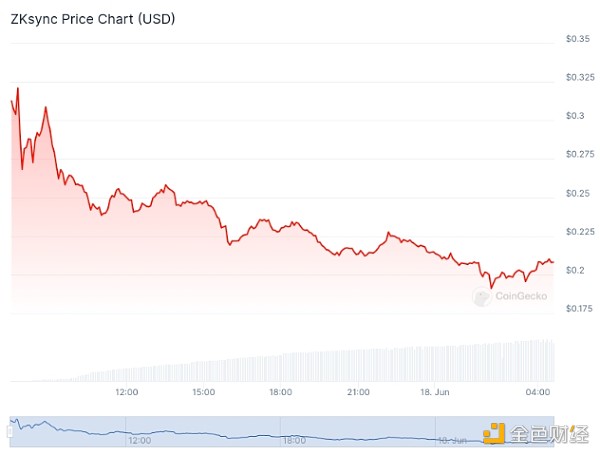Author: Jesse Coghlan, CoinTelegraph; Compiled by Wuzhu, Golden Finance
Nearly half of the top wallets that received new zkSync (ZK) tokens on Monday have sold their entire allocation in the airdrop, causing the price of ZK to fall 34.5% since launch.
Data from blockchain analytics firm Nansen shows thatNearly 41% of tracked addresses sold their entire airdrop, while 29.2% sold at least some of their tokens. The total sales of the two groups exceeded 486 million ZK.
More than 30% of the top receiving wallets hold their ZK tokens.
The data covers the “top 10,000 addresses” that received the ZK airdrop, but it only covers about 1.4% of the 695,232 wallets that zkSync said were eligible for the 3.7 billion ZK token airdrop last week.

Nansen tracked the “top 10,000 addresses” that received the ZK airdrop, with addresses that sold in green and addresses that partially sold in yellow. Source: Nansen
The non-profit zkSync Association (created last week by zkSync developer Matter Labs) posted to X early on June 17 that 45% of tokens were claimed in less than two hours, with the load causing some initial network issues.
According to data compiled by Matter Labs data scientist Landon Gingerich, more than 491,000 wallets have claimed nearly 75% of the airdropped ZK as of publishing time.
ZK has plunged 34.5% in the past day, having hit a high of $0.32 shortly after launch but now trading around $0.20, according to CoinGecko.

The price of the ZK token has fallen 33.5% in the past 24 hours. Source: Coingecko
The total supply of the token is 21 billion, with a fully diluted value of more than $4.4 billion.
But only 17.5% of the total supply is currently on the market, with a market cap of around $772 million — down from a peak of $1.1 billion shortly after launch.
The sharp sell-off by top wallets came after zkSync defended itself against criticism of its airdrop standards, with some saying its anti-Sybil measures were too lax and designed to discourage entities using multiple wallets to game the airdrop.
The project updated a document on June 15, claiming that aggressive Sybil filtering could falsely flag real users, so it opted for a “unique airdrop design” that it said was designed to reward the most organic users.
 Xu Lin
Xu Lin









